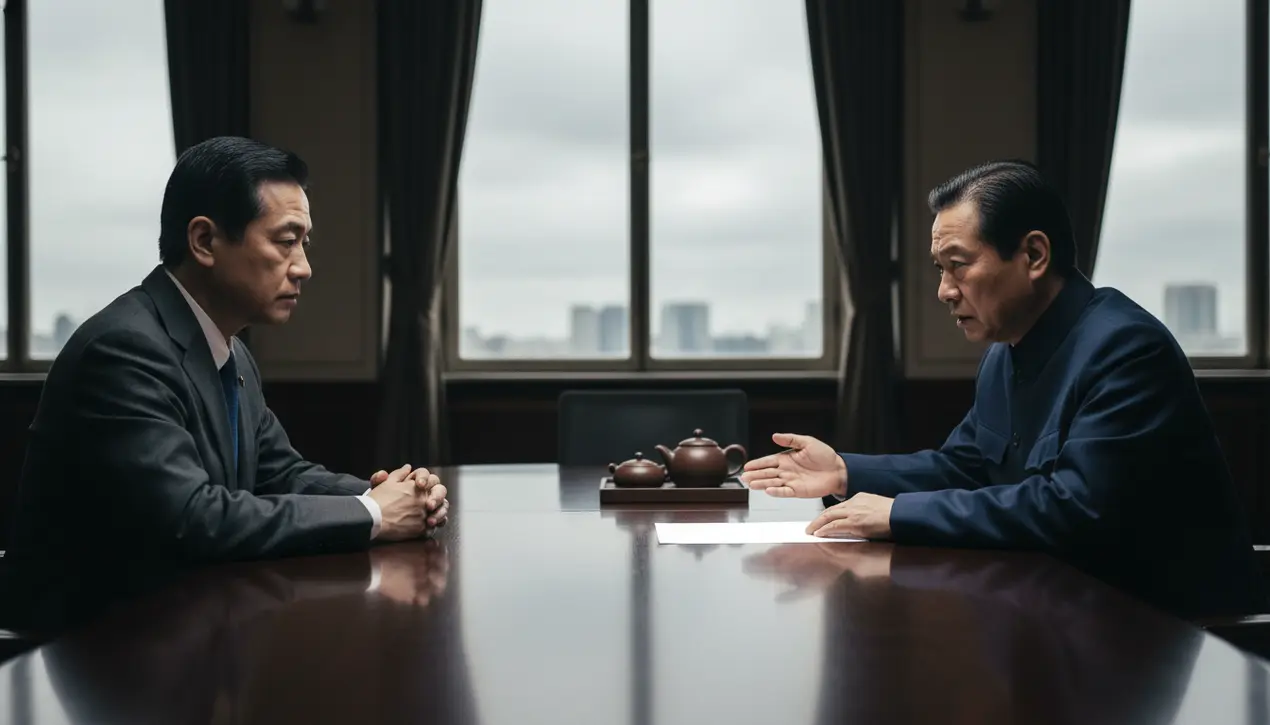
Politicsconflict & defenseMilitary Operations
China Summons Japanese Ambassador Over Taiwan Military Comments
OL
Oliver Scott
2 hours ago7 min read
The geopolitical chessboard rattled this week as Beijing summoned Japan's ambassador in a swift, sharp response to comments from Japanese Prime Minister Sanae Takaichi that suggested Tokyo could contemplate military action should China launch an assault on Taiwan. This isn't merely diplomatic posturing; it's a high-stakes escalation in one of the world's most dangerous flashpoints, a move that risk analysts are dissecting for its potential to trigger a regional contingency plan.The core of the crisis lies in Takaichi's explicit linkage of Taiwan's security to Japan's own, a significant hardening of rhetoric that moves beyond the traditional realm of strategic ambiguity and into the perilous territory of explicit deterrence. For China, which considers Taiwan an inalienable part of its territory under the One-China policy, any external suggestion of military intervention is a profound red line, a challenge to its core sovereignty claims that it cannot let pass without a forceful, public rebuttal.The summoning of the ambassador is a calibrated first step, a formal diplomatic protest meant to signal grave displeasure and demand clarification, but the underlying scenario it paints is one of mounting instability. Historically, Japan's post-war constitution, particularly Article 9, has been interpreted as forbidding the maintenance of a military with war potential, making any discussion of offensive action politically and legally explosive.However, a decade of strategic reassessment, driven by a more assertive China and an increasingly unpredictable North Korea, has seen Japan gradually reinterpret its self-defense capabilities, expanding its military budget and strengthening its alliance with the United States. Takaichi's remarks must be viewed through this lens of a Japan that is cautiously, yet decisively, shedding the vestiges of its pacifist identity to become a more active security player in the Indo-Pacific.The immediate risk is a dangerous feedback loop: Beijing's demonstration of resolve through diplomatic channels could be met with further hardening in Tokyo, especially among its more hawkish lawmakers who see a window of opportunity to normalize a more robust defense posture. Expert commentary from regional security firms indicates that the probability of a miscalculation has just inched upward; what was once a largely bilateral tension between China and the U.S. over Taiwan now has a third, highly capable actor explicitly inserting itself into the calculus.The consequences ripple outward, directly impacting global semiconductor supply chains that depend on Taiwanese foundries, international shipping lanes through the South China Sea, and the delicate balance of power that has prevented great power conflict in Asia for decades. For markets and governments alike, this incident is a stark reminder that the Taiwan Strait remains the single most likely theatre for a conflict that would have immediate and catastrophic global repercussions, transforming a regional dispute into a systemic shock with no clear off-ramp.
#featured
#China
#Japan
#Taiwan
#military action
#diplomatic protest
#regional tension
Stay Informed. Act Smarter.
Get weekly highlights, major headlines, and expert insights — then put your knowledge to work in our live prediction markets.
Comments
Loading comments...
© 2025 Outpoll Service LTD. All rights reserved.